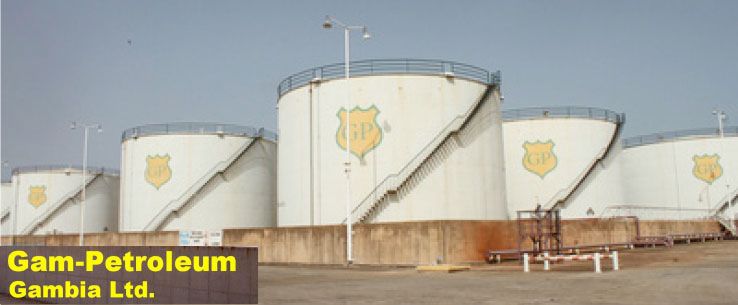Jah Oil General Manager Appears In GP Corruption Scandal Trial

By Landing Ceesay
The General Manager of Jah Oil Company, Mr. Momodou Hydara Tuesday appeared in the Gam Petroleum Corruption Scandal Trial as the Eight Prosecution Witness (PW9) in the trial involving two staff of Gam Petroleum at the High Court of the Gambia.
The 2 staff namely Saihou Drammeh (1st accused), former Managing Director and Lamin Gassama (2nd accused), former Operations Manager of the institution are charged with 8 counts (3 counts of economic crimes and 5 other counts) in the alleged corruption scandal.
The eight counts are levelled against the two in their maiden court appearance at the High Court in Banjul on 4th April 2022 presided over by Justice Haddy Roche.
Their appearance in court followed their arrest regarding their alleged involvement in the alleged corruption, malpractices and the missing of fuel products worth USD 20 million at the depot.
Mr. Hydara told the court that his company imports and distributes petroleum products in the country and source most of its products through various International Traders including Addax, Trafigura and PSTV.
He said when they contact the International Traders for products, and agree on the price; sometimes it takes a month or less before they receive the products, and the highest amount of products Jah Oil ever ordered was 6, 000 metric tons.
The witness told the court that Jah Oil and Gam Petroleum are partners in the petroleum business and there is no other relationship between them apart from business.
PW9 said at the time of the fuel crisis in the country Jah Oil had 1, 800, 000 litres of diesel at the Gam Petroleum depot and 60,000 litres of petrol in the negative balance.
He told the court that the issue of lifting petroleum products in the positive and negative balance is a normal practice that obtains in their industry and has been a norm since the inception of Gam Petroleum.
Mr. Hydara said Gam Petroleum had limited storage capacity for what the OMCs need, that is why they take products and replenish it when their products arrive, and Gam Petroleum allows companies to uplift products and repay them when their products arrive in order to keep the OMCs into the business.
“There is no OMC that has never been in the negative balance. You have to borrow so that you keep your business running. When your products arrive, you have to replenish what you took,” he told the court. “The business would have been untenable if big oil marketing companies like Jah Oil were allowed to fill up the tanks at the Depot and smaller companies won’t have space and would be asked to wait until their products arrive. The absence of a negative balance will give advantage to some companies over others.”
The General Manager of Jah Oil Company said nowadays the OMCs are now dealing directly and borrowing from one another and Jah Oil currently lends some OMCs over 500, 000 litres that will be refunded once their products arrive in the country.
He said Jah Oil could not access their 1, 800,000 litres diesel at the time of the shortage but were subsequently refunded when the situation became stable at the depot, and explained that during the crisis, Jah Oil used to source their products through Senegal to salvage the fuel shortage in the country.
When asked whether the government’s new price structure at the time affected the OMCs, Hydara told the court that the price was not favourable to the OMCs because they cannot operate their business at a loss.
The witness said the OMCs were displeased with the price structure and the new price structure came when the Government decided to tamper with certain parameters in the price structure.
He said the two protest letters the OMCs wrote to the Government warned it of the destructive consequences of the new price structure on the supply chain.
“Many of the OMCs were reluctant to import because you will start operating at a loss. We were actually nervous because they touched on the premium. We do not want to bring products and run at a loss,” Hydara told the court.
PW9 told the court that the OMCs knew that if the Government did not act on their letters, it would affect the industry and the Government failed to consider the exchange rate which is variable and fixed the price, which according to the witness, cannot be found anywhere in the world.
Lawyer Abdul Aziz Saho represented the State, while lawyers Christopher E. Mene, B. S. Conteh, S. Akimbo, Bakurin Pauline, and Sasum Sillah represented the 1st accused and 2nd accused persons in the hearing.
The hearing continues today at the High Court of the Gambia in Banjul.


Comments are closed.